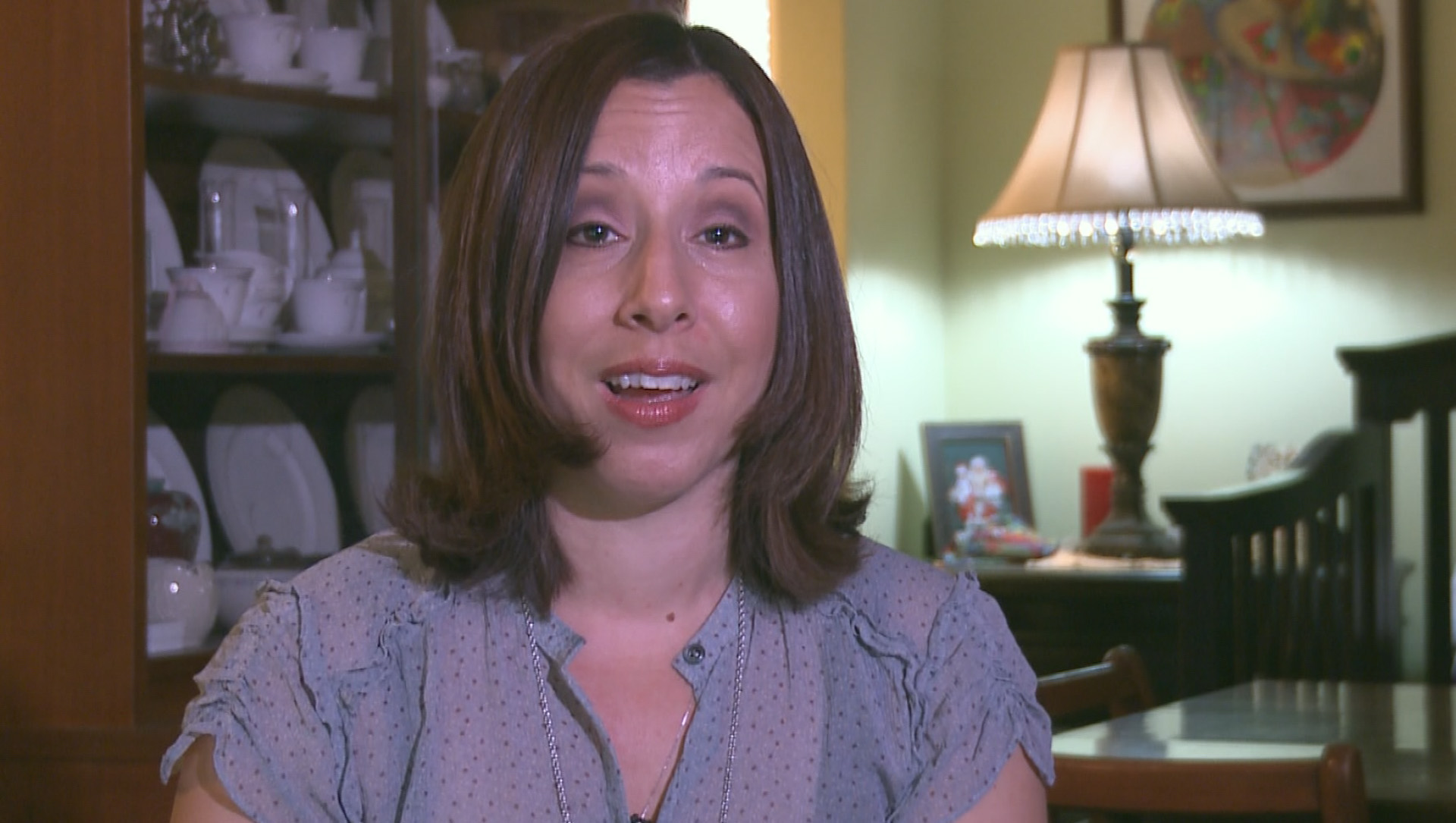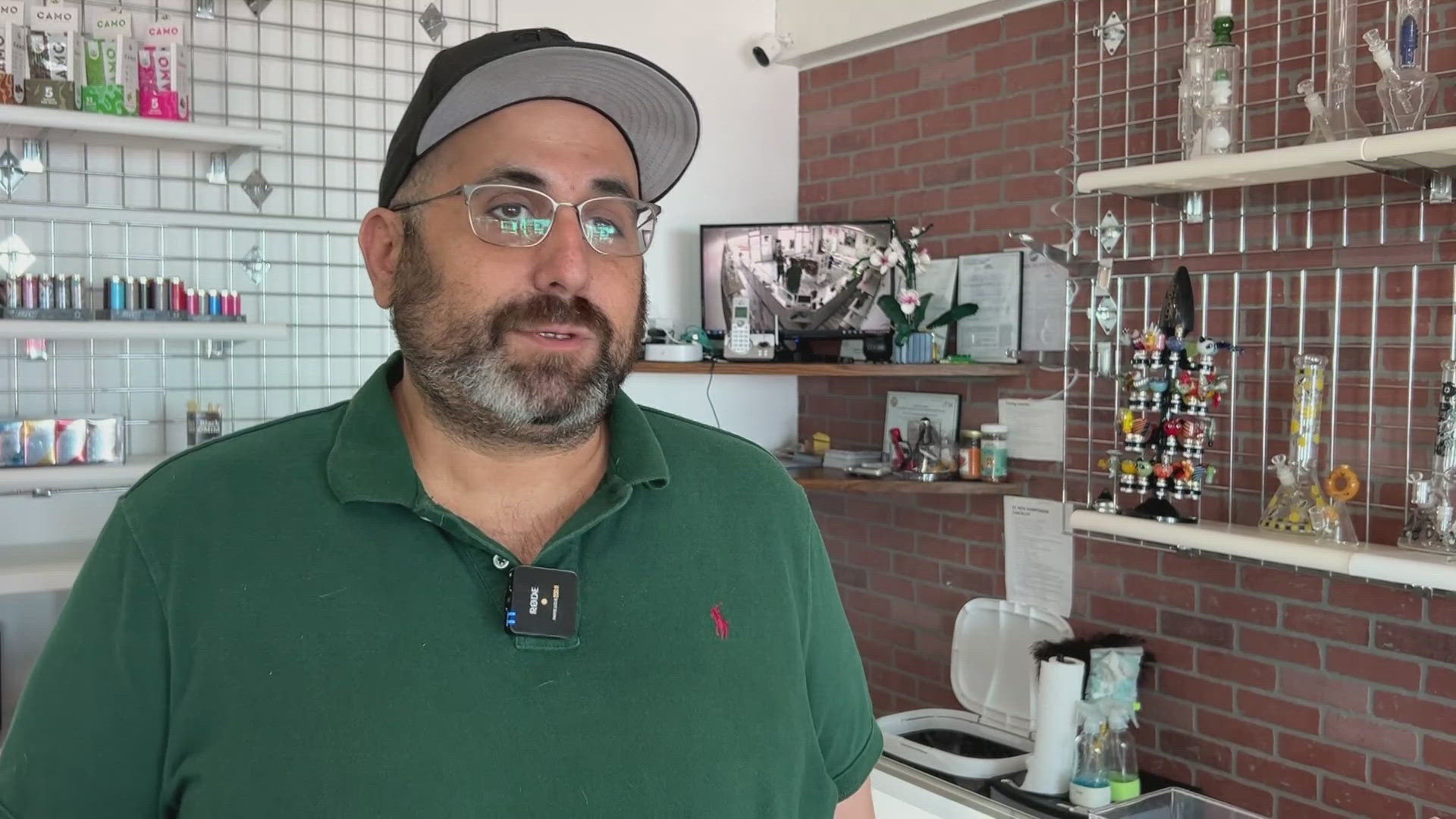Tampa, FL – Lisa Ferlita wanted a baby, but she was not prepared to roll the genetic dice again. She says she couldn’t especially after having two children born with an extremely rare and debilitating genetic disease.
“The odds are really not in our favor, so we really need to make sure that we’re doing everything we can to not have another baby with this because it’s so complex and it’s just not fair,” said Lisa Ferlita.
Ferlita’s walk through motherhood hasn’t been fair or easy.
Her days are spent caring for 3-year-old Lucia, who they call “Luci,” and keeping up with her active 7-month-old son, Anthony. There are many smiles, but behind her smiles there is heartbreak for the child who’s not with Lisa.
“Motherhood for me, I mean, the moment he was born was just the best thing that ever happened to me and to have that taken away was really hard,” Ferlita said as she choked back tears.
Her first born son, Vincent Ferlita, came into the world on February 25th, 2011. Eight weeks into his young life, Vincent stopped eating. He had poor muscle tone. He had complications breathing. Vincent went through extensive genetic testing, but doctors could not diagnose.
After six months of the tests, surgeries and fighting, Vincent passed away on August 23rd, 2011.
“They really weren’t able to conclude what, why he passed or what is exactly wrong. They thought it was a chromosomal fluke and they didn’t think it would happen again,” Ferlita explained.
With that hope, the Ferlita’s tried again for another baby. On October 4th, 2012 Lisa gave birth to Luci. Within 8 weeks the nightmare started again.
“Many times we almost lost her,” Ferlita cried. “My thought is that Vincent was here to teach us how to take care of her.”
In the time since Vincent had passed, scientists had developed a new genetic test which they were able to use to diagnose Luci with an extremely rare genetic disease called EMARDD. It stands for Early Onset Myopathy, Areflexia, Respiratory Distress and Dsyphagia.
Vincent is now the 15th diagnosed case in the world and Luci is the 16th.
The test also revealed that Lisa and her husband, Russell, are EMARDD carriers. No one else in their families has anything like this. Neither Lisa nor Russell show any symptoms of EMARDD, but because they have the same gene mutation, they have a one in four chance of having a child with this debilitating disease.
They wanted another baby, but they wanted to guarantee it would be healthy. The couple turned to Dr. Samuel Tarantino with the Reproductive Medicine Group.
“She was seeing me to do the PGD and the PGS to have a baby that didn’t have the disorder and also a baby that was genetically normal,” said Dr. Tarantino.
Through IVF the couple produced three viable embryos. Each embryo was checked for chromosomal abnormalities and for the EMARDD gene mutation.
Tarantino used a process called PGS or pre-implantation genetic screening to look for chromosomal abnormalities. Too many or too few chromosomes result in conditions like down’s or turner’s syndromes.
The next process, pre-implantation genetic diagnosis or PGD, is what saved the Ferlitas.
“PGD is looking at that small area which has the error,” Dr. Tarantino explained. He says they use probes to look for the genetic mutation, “To see whether those embryos had the defect, the gene defect. We were able to select the embryo that did not have the defect.”
Only one embryo did not have EMARDD. That embryo became Anthony. He’s now a happy and healthy 7-month-old boy, but is also an EMARDD carrier. As his mother explained, he’ll only have to worry about that when he tries to have children.
“If there wasn’t a way to screen to make sure that the baby didn’t have it, I would not have had another baby. I would not have taken the chance,” said Ferlita.
Tarantino says PGD is a high-level guarantee for parents who know that they could have a child with genetic conditions such as cystic fibrosis, sickle-cell, or even breast cancer.
Genetic embryo testing also comes with controversy. It can and has been used to select the sex of a child. John Legend and his supermodel wife, Chrissy Teigen, admitted they used the process to have a baby girl. Other celebrities have admitted the same.
The Reproductive Medicine Group does not do embryo sex selection.
“We think that what could happen is one day you could be able to select eye color, hair color, height, weight, looks, so we don’t want to get on that slippery slope,” Tarantino said.
To the critics out there, Lisa Ferlita has a different way of explaining why her family opted for PGS and PGD.
“Walk in my shoes and then we’ll talk,” she said. “My husband and I have been through the unimaginable. If looking at that child, looking at my seven-month-old, Anthony, doesn’t have God written all over it then I don’t know what to tell you.”
She wants other families to know that when genetic disorders are in your medical history, this is a medically sound way to have a healthy and happy baby.
10News WTSP also checked into the costs. Some insurance policies will cover it. Ferlita says from start to finish, IVF and all of the testing included, they paid $8,000 out-of-pocket.
The Reproductive Medicine Group is hosting its annual Fertility Conference on Saturday, May 21st. It’s open to the public and the doctors will discuss everything from advances in IVF, Donor Egg & Surrogacy to Financing. The conference runs from 8:30 a.m. to 1 p.m. It will be at the Hilton Tampa Westshore Hotel on North Lois Avenue. http://www.tampafertilityconference.com/


